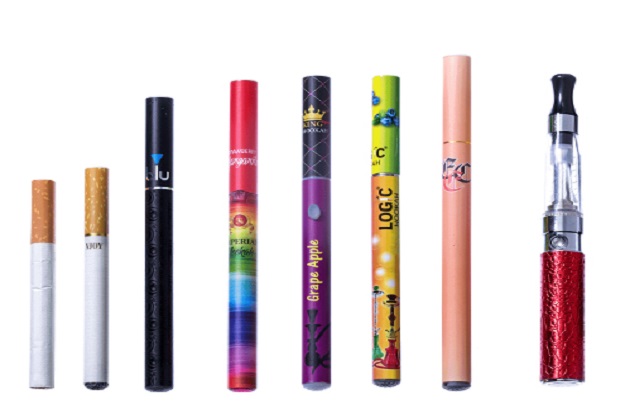Quit Smoking Blog
|
|||||||||||||||||||||||||||||||
|
|||||||||||||||||||||||||||||||
 Current news: NYSDOH Commissioner Zucker letter stating, effective September 12, 2019, any business that offers e-cigarettes or e-liquids for sale, must post the attached NYS Department of Health published sign in a conspicuous place. By requiring the posting of this sign, the NYS Department of Health expects that consumers will become more educated about the risks associated with vaping.
Current news: NYSDOH Commissioner Zucker letter stating, effective September 12, 2019, any business that offers e-cigarettes or e-liquids for sale, must post the attached NYS Department of Health published sign in a conspicuous place. By requiring the posting of this sign, the NYS Department of Health expects that consumers will become more educated about the risks associated with vaping.
The New York State Clean Indoor Air Act and Adolescent Tobacco Use Prevention Act establish the foundation of tobacco regulation for the state. Local counties have the option to create local laws and sanitary code sections that are stricter than those established by the state.
In Westchester County, the Board of Health passed Article XX of the Westchester County Sanitary code, which prohibits smoking in all dining areas of all restaurants, including bars and bar areas.Smoking is also prohibited in any outdoor service area of a restaurant, including patios, decks and sidewalks.
Apart from restaurants, smoking is permitted outdoors, but not under any kind of overhang that might trap smoke.
Westchester and NY State laws regarding smoking in worksites:
Where there are differences in these two laws, the more stringent sections of the two laws will apply in Westchester County.
Local Law:
Westchester County Sanitary Code: Article XX-Clean Indoor Air Act
Chapter 534, Westchester’s Smoke-Free Worksite Law (updated to reflect electronic cigarettes)
Chapter 535-Restrictions Relating to the Sale of Tobacco Products to Minors
The Neighbor Notification Law, Chapter 691 of the Laws of Westchester County, provides that notification is required when pesticides are sold or applied.
Commercial Pesticide Applicators are required to notify property owners of pesticide application to property abutting them 48 hours in advance of application.
Property Owners are required to inform the occupants of dwellings that abut the property being treated with pesticides 24 hours in advance of application.
Retailers are required to post signs close to pesticides instructing applicators to comply with the notification requirements.
Homeowners are required to post visual notification markers (signs) prior to applying pesticides to more than 100 sq. ft. of their property.
Find out what pesticides are subject to the Neighbor Notification Law in Westchester County.
Printable versions of visual notification markers (En español) (lawn signs) and retail information signs (En español) are available in pdf format. The signs must be printed on brightly colored paper and text may not be changed. Please see the Neighbor Notification Law for posting requirements.
 A basic reality is that children will have to make their way in a world that is filled with opportunities to use drugs, but parents can prepare their children to make positive choices.
A basic reality is that children will have to make their way in a world that is filled with opportunities to use drugs, but parents can prepare their children to make positive choices.
Learn
Parents need to get educated about the risks now. If parents have a working knowledge of common drugs, know their effects on the mind and body, and the symptoms of their use they can discuss these subjects intelligently with their children.
Communicate
Parents need to know that the most important thing to remember when it comes to talking about difficult subjects like drinking and drugs is that it's not a five-minute "talk."
Communication with your teen:
Take Action
It is a critical time for your family once you suspect – or know – that your son or daughter is using drugs or alcohol.
Know that many other families have had to work through these difficult times just like you. The most important thing is for you to take action on your child’s behalf the first time that you suspect drug or alcohol use.
Monitoring skills for parents:
Resources
Topical Issues
More Information
More than five million children alive today will die prematurely from smoking-related illnesses. Don't wait another second. Quit smoking. For free coaching and support at any time, call (866) 697-8487.
Smoking Cessation Programs
Smoking Cessation Phone Numbers
To help you quit, these health centers offer free workshops near your home.
Hudson River HealthCare
1037 Main Street
Peekskill, NY 10566
Phone: (914) 734-8991
College is stressful enough. Don't make it worse by smoking cigarettes. Free workshops are available for students, faculty and staff at:
Sarah Lawrence College
1 Mead Way
Bronxville, NY 10708
Phone: (914) 395-2350
SUNY/Purchase College
735 Anderson Hill Road
Purchase, NY 10577
Phone: (914) 251-6390
Mercy College
555 Broadway
Dobbs Ferry, NY 10522
Phone: (914) 674-7233
Publications
Web Resources: